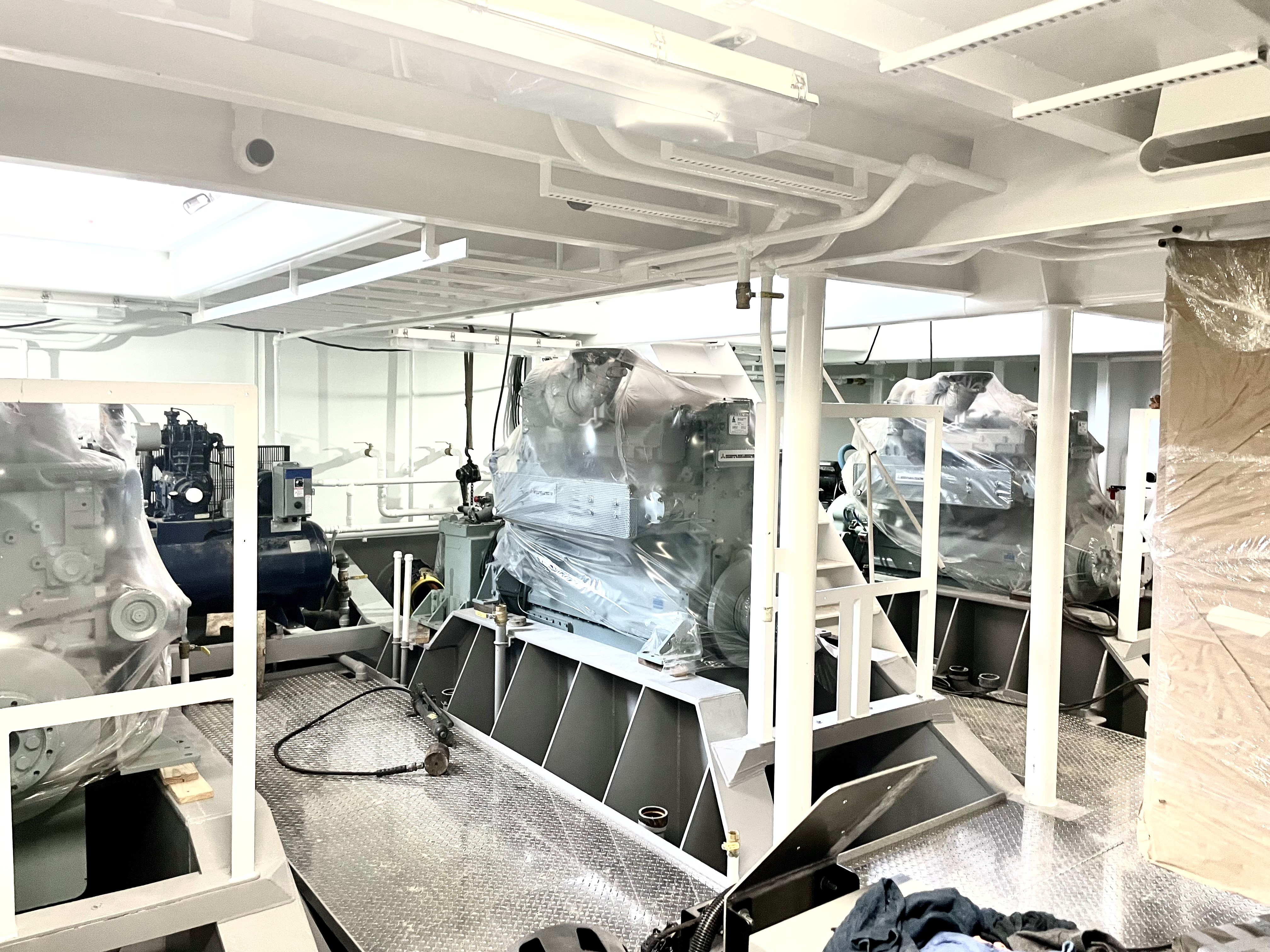When it comes to deciding on propulsion needs for a vessel, there are many factors to consider in today's regulatory environment. These factors include bollard pull, vessel size, engine emissions, fuel efficiency, and engine reliability. In this blog, we will discuss how these factors relate to triple screw propulsion and a vessel with 2400 horsepower.
Bollard Pull
Bollard pull is a critical factor to consider when choosing a propulsion system for a vessel. It refers to the pulling force that a vessel's propellers can generate when pulling against a stationary object such as a dock or another vessel. Bollard pull is an essential measurement for vessels that require high maneuverability and power, such as tugboats, workboats, and other commercial vessels.
Bollard pull is measured in units of force, such as pounds or tons. A vessel's bollard pull is determined by several factors, including the vessel's weight, size, and shape, as well as the propulsion system's power output and efficiency. A vessel with a high bollard pull is essential for tasks such as towing, pushing, and maneuvering in tight spaces.
When considering the bollard pull, it is essential to ensure that the propulsion system can generate sufficient power to meet the vessel's needs. A triple screw propulsion system can provide a higher bollard pull than a twin-screw propulsion system, making it an excellent option for vessels that require high levels of power.
Additionally, it is important to consider the vessel's stability when generating bollard pull. Generating high levels of bollard pull can cause the vessel to pitch or roll, potentially compromising the vessel's stability and safety. Proper vessel design and stability analysis should be conducted to ensure safe and effective operation. When opting for a triple screw, it is recommended to consider larger displacement rates and lower compression ratios to minimize stress on the vessel's systems.
Vessel Size
For a vessel with triple screw propulsion, the vessel's size can affect the displacement rate and compression ratio of the engine. When choosing the vessel size, it is crucial to consider the vessel's intended use and the required bollard pull. A vessel that requires high bollard pull, such as a tugboat or a workboat, will need a larger vessel with a higher power output. The size of a vessel also plays a role in determining propulsion needs. Triple screw propulsion systems are best suited for larger vessels that require more power and speed.
Engine Emissions
Environmental regulations for engine emissions are becoming more stringent, and vessel owners must consider these regulations when deciding on propulsion needs. Triple screw propulsion systems can provide high levels of power and speed while also meeting the latest environmental restrictions for engine emissions. The Tier 3 Mitsubishi S6R2 engine is an example of a triple screw engine that is designed to meet these environmental regulations.
Fuel Efficiency
The price of fuel is a critical consideration when deciding on a propulsion system for a vessel. Triple screw propulsion systems have been found to offer better fuel efficiency compared to twin-screw systems. Opting for a vessel with a 2400 horsepower triple screw propulsion system can help reduce fuel consumption and overall operating costs. This is especially true when the engine is designed with larger displacement rates and lower compression ratios to minimize stress and wear on the major and minor components of the propulsion system. By achieving better fuel efficiency, a vessel can operate more economically, resulting in lower operating costs over time.
Engine Reliability
The reliability of an engine is also an important factor to consider when deciding on propulsion needs. Triple screw propulsion systems, like the Mitsubishi S6R2, are known for their reliability and durability. These engines are designed to withstand high levels of stress and operate efficiently for extended periods. Leading companies in the industry have produced engines that are powering entire fleets, proving that their products can meet the basic requirements of various commercial marine vessels. However, the true test lies in the details, which is something that the actual users at Donjon can confirm on multiple levels. The efficacy and performance of an engine can only be fully assessed through real-world usage and feedback from experienced operators in the industry.

